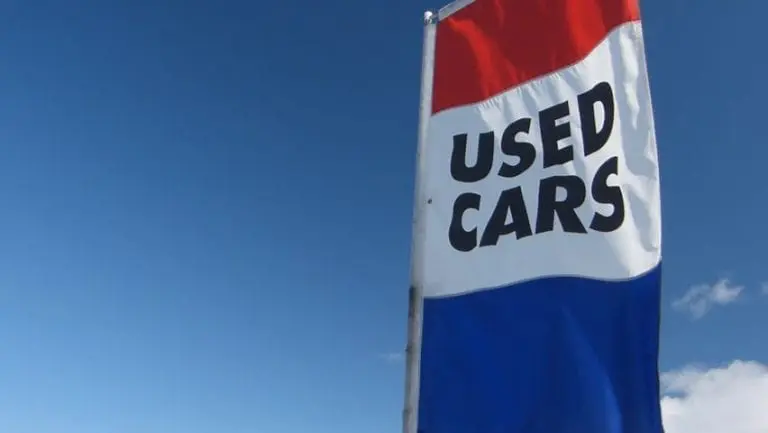3 Kinds of Scams that Target Drivers

How much do you trust the police officer who pulled you over for speeding? The mechanic who repaired your car after an accident? Or the person on the other end of an ad for a used car? While you probably have nothing to worry about, read about these three scams that target drivers before placing your trust in someone who doesn’t deserve it.
Fake Police Officers
The scam: Would it ever occur to you that the police officer who pulled you over for speeding isn’t actually a police officer at all? Believe it or not, some brazen fraudsters will pose as law enforcement officials in order to collect money on fake speeding tickets. In Calgary, for example, a fake officer pulled over unsuspecting drivers and told them they either needed to pay him directly for a speeding ticket or risk going to jail.
What can you do to protect yourself? Be wary if you’re pulled over by a cop who is driving an unmarked car and not wearing a uniform. You have the right to ask a police officer for their badge number and identification. If you’re unsure whether the traffic stop is legitimate, you can also call 911 to confirm you’ve been pulled over by a real officer.
Insurance Fraud
The scam: Unfortunately, insurance fraud is a pervasive problem that costs Ontario drivers an estimated $1.6 billion each year. While there are a few ways that drivers can fall victim to insurance fraud, the most common happens at the auto body shop where their car is serviced after an accident. A recent investigation by a Canadian insurer revealed that 9 out of ten mechanics committed fraud when working on cars that had been damaged in collisions. The offenses ranged from billing for services that didn’t happen causing (and charging for) further damage to the vehicles.
What can you do to protect yourself? When looking for a mechanic, consult with your insurer to see if they have a list of preferred vendors. Solicit a few quotes, and ask for estimates that clearly outline the required work. Consider it a red flag if the mechanic asks you to sign a blank work order – something you should never do. Make sure you get a detailed bill when the work is done, and double check it to make sure you received all the services and parts that were charged. Finally, if you suspect the shop isn’t being honest, consult with your car insurance provider to find out what to do next.
Phony Used-Car Sellers
The scam: The Ontario Motor Vehicle Industry Council (OMVIC) warns of professional scammers targeting drivers that are in the market for a used car. These fraudsters post phony online car ads with too-good-to-be-true prices and then weave elaborate stories to explain why the car isn’t available for a test drive (for example, they recently moved and the car is in storage). Once the buyer sends a deposit for the vehicle, the “seller” disappears.
What can you do to protect yourself? The OMVIC advises consumers to watch out for these warning signs when reviewing car ads: it’s a local ad, but the car is located out of town; there are excuses as to why a test drive or inspection isn’t possible; the pictures don’t reflect the season or the supposed location of the vehicle; the vehicle is priced below market value; the seller promises to ship the vehicle to you if you put the money in a trust or escrow account.
Luckily, most people you encounter aren’t trying to trick you! But it’s worth understanding the common red flags that point to a potential scam so you can prepare and protect yourself if something doesn’t seem quite right. It never hurts to trust your instincts and ask for more information, rather than risk losing money to a criminal.
Similar Posts:
- How You Can Lower Your Risk Level to Lower Your Car Insurance Premium
- 5 Ways to Spend Less on Car Insurance
- How To Find the Best Car Insurance
- Understanding the Differences Between Comprehensive Insurance and Collision Insurance
- Why Do You Need Car Insurance Before Purchasing a Vehicle?










Impressive post!